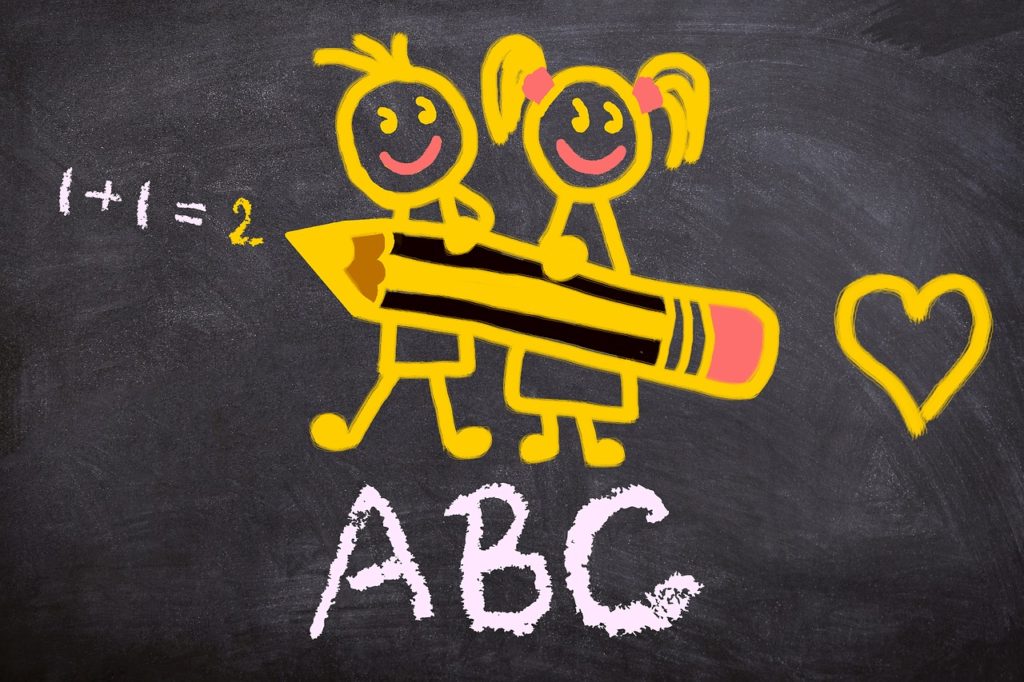10 Early Childhood Warning Signs Of Autism
- 1 in 68 school-aged children have been identified with autism spectrum disorder (ASD)
- Autism spetrum disorder is 4.5x more common in boys (1 in 42) than girls (1 in 189)
- Less than half of children with autism will receive a medical assessment before age 3
“What we know for sure is that there are many children living with autism who need services and support, now and as they grow into adolescence and adulthood.” -Stuart K. Shapira, MD, PhD of Centers for Disease Control
What Is Autism?
Autism is a set of disorders with a group of core symptoms. These symptoms are on a spectrum, meaning they vary in intensity. You may have heard someone refer to the autism spectrum – this is what they’re referring to.
The symptoms of autism often begin manifesting early on in a child’s development. The pace at which children develop can vary, but it is important to be aware of the potential red flags associated with autism and child development.
Parents and physicians alike are being encouraged to learn the signs of autism in order to sufficiently address the needs of the child. While you should never rush to diagnostic conclusions yourself, once you know these signs, you may opt to have your child screened for autism by a medical professional.
Advertisement
Autism Warning Signs: Critical Developmental Stages (6 – 24 Months)
The early signs of autism manifest at key developmental milestones (6 months, 9 months, etc.). The first two years of a child’s life are extremely formative – just a difference of a few months may impact how symptoms present. If your child is exhibiting early signs of autism, each of the following developmental milestones may be accompanied by different atypical behaviors.
6 Months Old – Lack of smiling and other warm expressions of emotion.
By this age, we would expect your baby to begin smiling and expressing different warm and happy emotions. A lack of this type of expression is atypical.
9 Months Old – Lack of aural interaction or exchange of facial expressions
Around 9 months, parents can typically expect their babies to begin engaging with other people. Rather than smiling randomly, babies will begin smiling in response to external stimuli as they interact with other people. If your baby is not engaging with others by exchanging facial expressions and sounds, it can be a red flag. (Continues on Page 2)
Advertisement
Advertisement
12 Months Old – Lack of babbling & hand gestures
By 12 months, we typically expect the child to begin responding to his or her name. Additionally, we expect to see the child using hand gestures to communicate with their environment. At 12 months, children will typically be able to point or gesture to indicate what they want or what they’re referring to. Additionally, verbal expression may still be subdued – you may notice a lack of babbling, often referred to as “baby talk”.
16 Months Old – No spoken words
By 16 months, children begin using spoken words. While there can be variation in child development timelines, a complete lack of spoken words at 16 months is considered a red flag for autism.
24 Months Old – Lack of substantive verbal communication
At 24 months, children are typically beginning to use two-word expressions in a substantive way, meaning that they are able to synthesize their own thoughts and translate those thoughts to speech. Children exhibiting possible signs of autism will only be able to use two-word phrases in an imitative fashion. (Continues on Page 3)
Advertisement
Advertisement
Speech And Language Difficulties
Speech & language development is one of the primary areas a physician will evaluate when screening a child for autism. Some symptoms your physician will look for when evaluating your child for autism are:
- Atypical speech rhythms or tones
- Rather than answering questions, young children with autism may repeat them
- Difficulty verbally expressing needs
- In older children, difficulty detecting humor
Nonverbal Communication Issues
Verbal communication isn’t the only area in which children with autism will experience difficulty. The cultivation of nonverbal communication skills will prove challenging, as well. Any of the following can warrant having your child screened for autism:
- Avoid eye contact
- Facial expressions do not correspond to words being spoken
- Doesn’t respond to other peoples’ gestures and facial expressions
- Lack of hand gestures (pointing, for example)
- Clumsiness or idiosyncratic movement patterns
Advertisement
Advertisement
Lacks Concern With Your Pain
As a parent, your child will likely be glued to your side. As they become toddlers, they should become more aware of and empathetic to the feelings of people around them, especially their parents. Pain, in particular, should illicit a concern response in your child.
If you stub your toe or cut your finger and cry out in pain, your child is likely to become upset and express concern. If your child has no reaction to your pain, it can be a red flag that they are unable to pick up on cues.

Advertisement
Advertisement
Doesn’t Gain Satisfaction From Playing With Others
Toddlers and young children should gain enjoyment and satisfaction from being socialized with other children.
If you notice that your child isn’t interested in socializing with other children, or just flat out doesn’t enjoy it, this may warrant an autism screening. A lack of enjoyment may manifest in the form of withdrawal. While the other children are interacting, your child may isolate him or herself and play alone.

Advertisement
Advertisement
Inflexibility
Children who are at risk for autism will often form rigid patterns of behavior from which they have extreme difficulty deviating from. This can manifest in various ways:
- Follows a rigid daily routine. Breaking from daily routing may cause emotional duress.
- Unhealthy attachment to objects, such as toys
- Obsession with repetition. This can manifest in their own repetitive behaviors, or by interest in watching repetition (such as a rotating tire or fan)
- Extreme interest in narrow or niche topics, such as calendars or maps.
Advertisement
Advertisement
What To Do
If segments of the aforementioned behaviors hit a little too close to home, don’t panic. There are steps you can take to confirm or deny your concerns. If it is confirmed that you have a child living with autism, there is a supportive community and plenty of professional options to help you. Here are some initial steps you can take:
- Schedule an Autism screening with a medical professional
- Ask your Primary Care Physician for a recommendation for a developmental specialist
- Intervene early – the sooner a diagnosis can be made, the better
Coming to the realization that aspects of your child’s behavior are atypical is never easy. However, while this information isn’t meant to diagnose or substitute for professional medical advice, it should give you a starting point. There is an extremely supportive group of parents out there, so do not be afraid to reach out.

